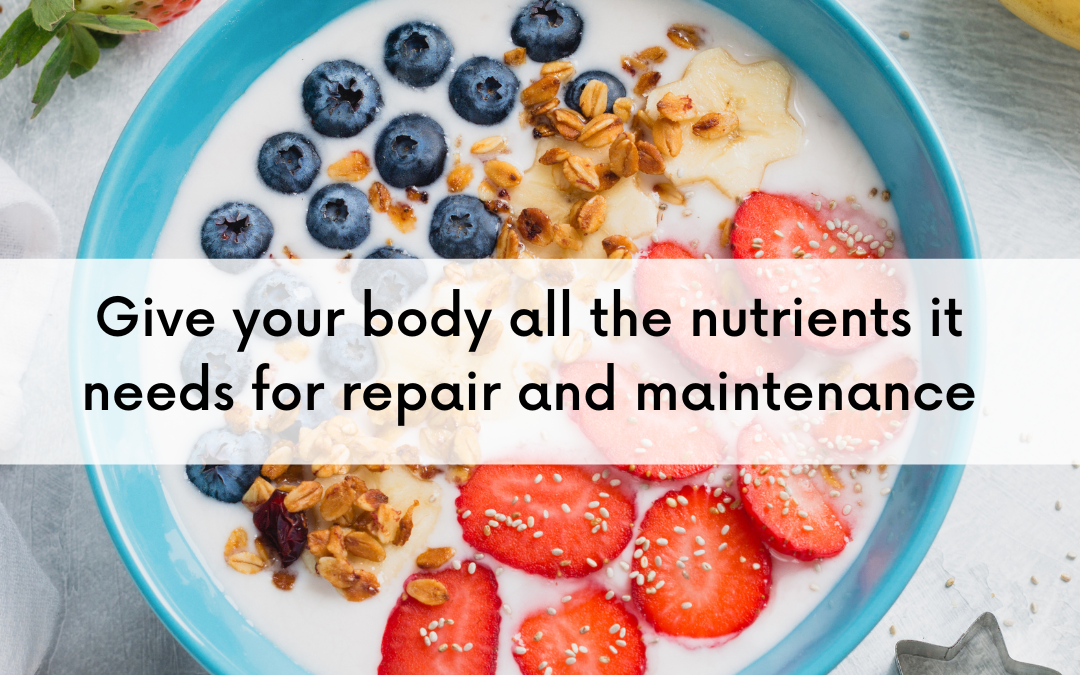The human body is an amazing organism.
The basic processes of life include organization, metabolism, responsiveness, movements, and reproduction. In humans, who represent the most complex form of life, there are additional requirements such as growth, differentiation, respiration, digestion, and excretion. All of these processes are interrelated.
One of the many actions the human body does is to attempt to repair itself when necessary. It can do this successfully if given the right conditions.
The body need nutrients to repair itself. There are forty nutrients that cannot be made in the body. They are essential fatty acids, 15 vitamins, 14 minerals, and 10 amino acids. With these nutrients, the body synthesizes an estimated 10,000 different compounds essential to the maintenance of health. These nutrients must be consumed in the form of food or nutritional supplements.
So, what happens when the body gets injured or sick?
Let’s first look at the example of damaged nerves.
When a body has damaged nerves, it wants to fix this problem. The body always has a priority of things to repair. Damaged nerves interrupt the communication signals of the body and are thus a priority issue to fix.
The body needs specific B vitamins in order to repair the nerves. So, all the B vitamins that are in the food consumed will go to fixing the nerves first. If the body is using all of these to fix the nerves it can create a deficiency for the rest of the body’s needs. It can create problems for other parts of the body that also needs B vitamins to function well; the body will be deficient in B vitamins for its other functions – a healthy cardiovascular system, energy production, digestion, health gums and teeth – the list goes on.
When there’s an infection, the body needs vitamin C to combat it. The body will address an infection as a top priority as it is a big threat to the body’s survival. If the body uses all the vitamin C in the food consumed to address this infection, other parts of the body that need vitamin C will suffer.
It is important to consume enough of what the body needs. If you have an injured or ailing body, your body needs enough nutrients to repair the problem, plus enough for the rest of the body to function properly and maintain itself.
What are the “side effects” of not having enough of the different vitamins?
The side effects are the various nutritional deficiencies that result because all the vitamins the body has available go to repairing the body.
It’s virtually impossible to obtain all the nutrition your body needs through food while still maintaining your ideal weight. That’s where nutritional supplements come in. They complement your diet and provide concentrated nutrition to help your body repair and maintain itself.
The combination of eating a diet full of nutrient-dense foods and consuming high-quality nutritional supplements will help ensure your body has all the nutrients it needs to address any health issues while also having enough nutrition for the rest of the body’s nutritional needs.
Scientific studies have demonstrated the nutritional and health benefits of natural plant sources. Plant-based ingredients support the World Health Organization report, Technical Series Report 916, page 42, which states, “We should eat a diet consistent with the diet our genes became programmed to respond to.”
Genetically, our bodies are designed to respond to plant nutrition.
So, when you choose your nutritional supplements, choose ones made from whole food sources, not chemicals produced in a laboratory. Whole food supplements will be better absorbed and utilized by your body giving you better health results and more value for your money.

